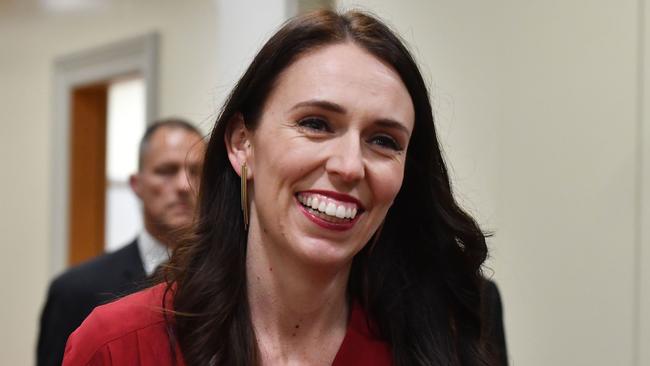
The rise of celebrity politicians, the fall of good governments, the terror of the populists — in its mild, vanilla way, this weird New Zealand election outcome has it all.
Trust the Kiwis. The thought of perhaps 10 years of good government was ultimately unbearable for them.
The Nationals under John Key and Bill English had taken power when the New Zealand economy was nothing and the chief ambition of every bright spark around was to get across the ditch. By slow, incremental, careful economic reform they made the place competitive and restored national pride.
The flow of people across the ditch started in the opposite direction from usual.
Wellington became a byword for good government. Key was arguably the most successful centre-right leader in the world.
English, alas, was his John Brumby, achieving a lot in charge of the finances under Key but then, when he got a second shot at leadership with the advantage this time of incumbency, falling just one seat short of a majority.
English had big achievements under his belt. He was at least as important as Key in reviving New Zealand’s economy. Having shepherded continuous reform through and seen New Zealand’s living standard rise steadily, having smoothly transitioned the government after Key’s resignation a year ago, English was no match for celebrity and populism.
Jacinda Ardern at 37 is an infant in politics. She has neither policy nor political achievements to her name. She became leader five minutes ago. During the campaign she made an absolute hash of tax policy. So naturally she won.
These days, celebrity trumps everything in Western politics. You can be an old, grumpy celebrity like Bernie Sanders or Jeremy Corbyn, or an old and grotesque celebrity, like Donald Trump, or you can be young and pop star-like as in Justin Bieber, oops, I mean Justin Trudeau. Any of these permutations can work.
At the next US election the Democrats could be well advised to run a combined ticket of George Clooney and Oprah Winfrey.
The thing is to be new to politics and not have achieved anything before you run for national leadership. Then the electorate can project their fondest fantasies onto you. Even better, if you can add to your celebrity the benediction of a rank populist like Winston Peters.
Of course, when we say that Ardern won, we are only talking about winning under the wacky New Zealand mixed-member proportional-representation system. English’s Nationals won more than 44 per cent of the vote, almost 8 per cent more than Ardern’s Labour. Under a first-past-the-post system like Britain’s, English would have won a landslide victory. Even under a preferential system like Australia’s, English would almost certainly have won a comfortable majority.
His natural coalition partner, the free-market ACT Party, won just one seat. If only it had won one more. English’s former partner, the Maori Party, lost both its seats. If only it had held on. But these are the ghostly ifs of history.
English instead has the doleful company of Hillary Clinton in that growing club of sure-thing favourites who faced feeble opponents, won the most votes by a big margin, but still managed to lose the national office.
Ardern and Peters will almost certainly take New Zealand backwards. Neither likes the direction of economic reform that has worked so well in New Zealand. Both want to cut New Zealand’s relatively modest immigration program which has been a source of such dynamism in the economy.
Ardern will probably take the country back away from the slowly evolving strategic participation Wellington had edged towards over the last decade.
The new government is desperately short on experience, has a tiny majority, doesn’t like efficient economics and has an unpredictable populist attention seeker as its king maker. Does that sound like a recipe for good government? It might be, because when anything is possible even a good outcome cannot be ruled out altogether.
Oh yes, and Julie Bishop better find a way of cooing some sweet nothings to Ardern’s new government, after Canberra ludicrously accused it of malicious connivance in Barnaby Joyce’s citizenship problems. Strange times indeed.







To join the conversation, please log in. Don't have an account? Register
Join the conversation, you are commenting as Logout